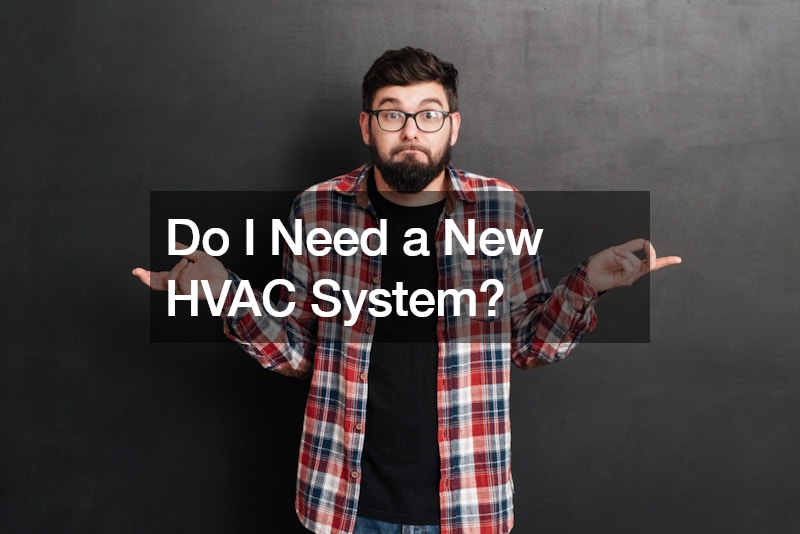Deciding whether to replace your HVAC system is a significant decision that impacts comfort, energy consumption, and expenses. Here are some key indicators and considerations to determine if you need a new HVAC system.
1. Age of Your Current System
The lifespan of an HVAC system typically ranges between 15 to 20 years. If your system is approaching or has surpassed this age, it may be time to consider a replacement.
Older systems are less efficient and more prone to breakdowns, which can lead to increased repair costs and higher energy bills.
2. Frequency and Cost of Repairs
Frequent breakdowns are a clear signal that your HVAC system may be on its last legs. If you find yourself calling for repairs regularly, especially for major components like the compressor or heat exchanger, it might be more economical in the long run to invest in a new system. Compare the cost of repairs against the price of a new unit. A good rule of thumb is if repair costs approach 50% of the value of your system, replacement is a financially sound choice.
3. Energy Bills
An increase in energy bills can indicate that your HVAC system is declining in efficiency. As systems age, they often require more energy to maintain the same level of comfort, leading to higher utility costs. Upgrading to a new, energy-efficient system can reduce your energy consumption and save money on bills.
4. Inconsistent Temperatures and Comfort Issues
If you notice uneven heating or cooling, frequent cycling (turning on and off), or it seems your system can’t maintain a comfortable temperature, it could be a sign of a failing system. Such issues often stem from problems with the thermostat, ductwork, or the unit itself losing its ability to effectively regulate air temperature and flow.
5. Indoor Air Quality Concerns
Older HVAC systems can struggle to manage humidity levels and filter out air pollutants, which can compromise indoor air quality. Signs of poor air quality include increased dust accumulation, musty odors, or heightened allergy symptoms among household members. Modern HVAC systems come equipped with better humidity control and advanced filtration technologies, enhancing overall air quality.
6. R-22 Refrigerant
If your current system uses R-22 refrigerant (Freon), you should consider replacement. Production of R-22 has been phased out due to its harmful environmental effects, making it expensive and difficult to source. Newer models use R-410A refrigerant, which is more environmentally friendly and energy-efficient.
7. Advancements in Technology
Modern HVAC systems offer significant advancements in technology, including smart thermostats, variable speed motors, and improved SEER (Seasonal Energy Efficiency Ratio) ratings. These features not only enhance comfort and control but also contribute to energy savings and environmental benefits.
In conclusion, if your HVAC system is old, less efficient, or frequently in need of repairs, upgrading to a new system can offer long-term savings, improved comfort, and better air quality. Consulting with a reputable HVAC professional can provide personalized advice and help you make the best decision based on your specific needs and circumstances.
Watch the video above to learn more and determine if you need a new HVAC in Arnold, MO!


